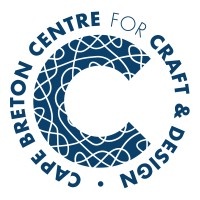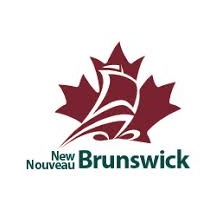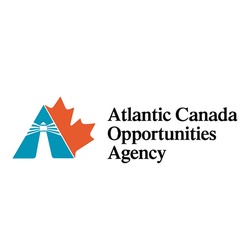Culture Grants and Funding in Nova Scotia for 2026
Explore grants for arts, heritage, and creative industries across Nova Scotia. Understand programs, eligibility, deadlines, and how to prepare a strong application.
Nova Scotia offers a diverse ecosystem of culture grants and arts funding that supports artists, organizations, festivals, museums, heritage properties, and creative businesses. Programs exist at the provincial, municipal, and federal levels, with targeted streams for Indigenous, African Nova Scotian, Acadian and francophone, rural, youth, and newcomer initiatives. This directory explains the main types of support, common eligibility criteria, and practical steps to plan, apply, manage, and report on cultural funding.
20 opportunities available

Loans and Capital investmentsOpen
Regional Economic Growth through Innovation (REGI) — Business Scale-up and Productivity — ACOA
Atlantic Canada Opportunities Agency (ACOA)Financing to accelerate growth in Atlantic Canada
Eligible Funding
- No Condition
Eligible Industries
- Manufacturing
- Information and cultural industries
- Arts, entertainment and recreation
Types of eligible projects
CommercializationHuman ResourcesInnovation

Wage Subsidies And InternsOpen
START Program
Government of Nova ScotiaFinancial incentives for Nova Scotia employers with a labour need
Eligible Funding
- No Condition
Eligible Industries
- Manufacturing
- Information and cultural industries
- Finance and insurance
- Professional, scientific and technical services
Types of eligible projects
Human Resources

Grant and FundingClosed
Disaster Financial Assistance Program — Non-profits
Government of Nova ScotiaFunding for Nova Scotia wildfire damage to non-profits
Eligible Funding
- Maximum amount : 200,000 $
Eligible Industries
- Arts, entertainment and recreation
Types of eligible projects
Environment and Climate

Grant and FundingOpen
Creative Entrepreneurship Program
Cape Breton Centre for Craft and DesignResources for Cape Breton Island and Mulgrave, Nova Scotia, craft entrepreneurs
Eligible Funding
- No Condition
Eligible Industries
- Arts, entertainment and recreation
- Other services (except public administration)
- Public administration
Types of eligible projects
CommercializationHuman Resources

Tax CreditsClosed
New Brunswick Digital Media Tax Credit
Government of Nova ScotiaTax credit for interactive digital media production in Nova Scotia
Eligible Funding
- Up to 30% of project cost
Eligible Industries
- Information and cultural industries
Types of eligible projects
Digital Transformation

Grant and FundingOpen
Nova Scotia Film and Television Production Incentive Fund
Government of Nova ScotiaFunding for film and television production in Nova Scotia
Eligible Funding
- Minimum amount : 25,000 $
- Up to 26% of project cost
Eligible Industries
- Information and cultural industries
Types of eligible projects

Grant and FundingClosed
Creative Industries Fund in Nova Scotia
Government of Nova ScotiaCreative industry global growth funding in Nova Scotia
Eligible Funding
- Maximum amount : 30,000 $
- Up to 50% of project cost
Eligible Industries
- Information and cultural industries
- Arts, entertainment and recreation
Types of eligible projects
Commercialization

Partnering and CollaborationGrant and FundingExpert AdviceClosed
Atlantic Canada Travel Trade Market Readiness Program
Government of Nova ScotiaAdvice for tourism operators in Atlantic Canada
Eligible Funding
- No Condition
Eligible Industries
- Arts, entertainment and recreation
- Accommodation and food services
Types of eligible projects
CommercializationBusiness Buyout

Loans and Capital investmentsOpen
Invest Nova Scotia — Investment
Government of Nova ScotiaEarly stage investment for Nova Scotia innovators
Eligible Funding
- Up to 25% of project cost
Eligible Industries
- Information and cultural industries
- Finance and insurance
- Professional, scientific and technical services
Types of eligible projects
TechnologyInnovation

Loans and Capital investmentsOpen
CBDC NB Small Business Emergency Working Capital Program
Community Business Development Corporations (CBDC)Financial help for small businesses in NB
Eligible Funding
- Maximum amount : 100,000 $
Eligible Industries
- Retail trade
- Arts, entertainment and recreation
- Accommodation and food services
- Other services (except public administration)
Types of eligible projects

Wage Subsidies And InternsOpen
Clean Leadership Summer Internships — Nova Scotia
Clean FoundationWage subsidies to hire students looking for careers in the clean economy
Eligible Funding
- Up to 60% of project cost
Eligible Industries
- Agriculture, forestry, fishing and hunting
- Transportation and warehousing
- Information and cultural industries
- Professional, scientific and technical services
Types of eligible projects
Environment and ClimateHuman Resources

Tax CreditsClosed
Nova Scotia digital animation tax credit
Government of Nova ScotiaTax credit for digital animation in Nova Scotia
Eligible Funding
- Up to 67% of project cost
Eligible Industries
- Information and cultural industries
Types of eligible projects
Digital Transformation

Tax CreditsOpen
Nova Scotia digital media tax credit
Government of Nova ScotiaRefundable tax credit for interactive digital media development in Nova Scotia
Eligible Funding
- Maximum amount : 100,000 $
- Up to 60% of project cost
Eligible Industries
- Information and cultural industries
- Professional, scientific and technical services
- Arts, entertainment and recreation
Types of eligible projects
TechnologyDigital Transformation

Expert AdviceOpen
Business Navigators - NS
Government of Nova ScotiaHelp understanding business regulations in Nova Scotia
Eligible Funding
- No Condition
Eligible Industries
- Agriculture, forestry, fishing and hunting
- Construction
- Manufacturing
- Retail trade
Types of eligible projects
CommercializationConstruction and Renovation Human Resources

Grant and FundingArchived
Atlantic Innovation Fund — Universities, Colleges and Research Institutions
Atlantic Canada Opportunities Agency (ACOA)Funding for R&D in Atlantic Canada
Eligible Funding
- No Condition
Eligible Industries
- Manufacturing
- Information and cultural industries
- Professional, scientific and technical services
- Educational services
Types of eligible projects
Innovation

Wage Subsidies And InternsOpen
Invest Nova Scotia — Payroll Rebate
Government of Nova ScotiaPayroll rebate for Nova Scotia companies
Eligible Funding
- No Condition
Eligible Industries
- Information and cultural industries
- Finance and insurance
- Public administration
Types of eligible projects
TechnologyBusiness BuyoutInnovation

Other SupportOpen
Experience Nova Scotia: A Toolkit
Government of Nova ScotiaHow to grow your N.S. business by developing tourism experiences
Eligible Funding
- No Condition
Eligible Industries
- Arts, entertainment and recreation
- Accommodation and food services
Types of eligible projects
Digital Transformation

Expert AdviceOpen
CBDC Women in Business New Brunswick
Community Business Development Corporations (CBDC)Advice for women entrepreneurs in New Brunswick
Eligible Funding
- No Condition
Eligible Industries
- Retail trade
- Professional, scientific and technical services
- Arts, entertainment and recreation
- Other services (except public administration)
Types of eligible projects
CommercializationTechnologyHuman ResourcesInnovation

Wage Subsidies And InternsOpen
GradWorks — Employer Incentive Program
Nova Scotia Community CollegeConnect with skilled graduates in Nova Scotia
Eligible Funding
- Maximum amount : 30,360 $
- Up to 66% of project cost
Eligible Industries
- Agriculture, forestry, fishing and hunting
- Mining, quarrying, and oil and gas extraction
- Utilities
- Construction
Types of eligible projects

Grant and FundingOpen
Canadian Experiences Fund - Atlantic Canada Opportunities Agency (ACOA)
Innovation, Science and Economic Development Canada (ISED)Funding to develop and enhance tourism experiences and facilities
Eligible Funding
- No Condition
Eligible Industries
- Agriculture, forestry, fishing and hunting
- Arts, entertainment and recreation
- Accommodation and food services
Types of eligible projects
Environment and ClimateHuman Resources
Frequently asked questions about culture grants in Nova Scotia
Find concise answers about arts funding, heritage grants, festivals, creative industries, eligibility, deadlines, budgets, reporting, and how experts can help you apply.
Who can apply for culture grants in Nova Scotia?
What types of activities do arts funding programs cover?
How do I plan a strong grant budget?
What are common assessment criteria for Nova Scotia grants?
How can helloDarwin help my organization secure arts funding?
Are there targeted grants for Mi’kmaq, African Nova Scotian, or Acadian projects?
What documentation strengthens a festival funding application?
Can I combine municipal, provincial, and federal funding?
What if my grant application is unsuccessful?
How does helloDarwin support reporting and compliance after funding?
Explore related grant directories
By Business Size
By Service
Artificial Intelligence Grants and Funding in Atlantic Provinces
Commercialization Grants and Funding in Nova Scotia for 2026
Commercialization Grants in Atlantic Canada
Digital Transformation Grants in Nova Scotia
By Industry
Culture Grants and Funding in the Atlantic Provinces
Education Grants in Nova Scotia
Education Grants in the Atlantic Provinces
Grants and Funding for Construction Companies in Atlantic Canada
Grants and Funding for Construction Companies in Nova Scotia
Grants and Funding for Financial Services in Atlantic Provinces
Grants and Funding for Financial Services in Nova Scotia
Grants and Funding for Green Manufacturing and Decarbonization in Atlantic Canada
Grants and Funding for the Mining Sector in Atlantic Provinces
Grants and Funding for the Mining Sector in Nova Scotia
Grants and Funding in Agriculture in Atlantic Provinces
Grants and Funding in Agriculture in Nova Scotia
Grants for Green Manufacturing and Decarbonization in New Brunswick
Grants for Green Manufacturing and Decarbonization in Nova Scotia
Healthcare Grants and Funding in Atlantic Provinces
Healthcare Grants and Funding in Nova Scotia
Manufacturing Grants and Funding in Atlantic Provinces
Manufacturing Grants and Funding in Nova Scotia
Transportation and Warehousing Grants and Funding in Atlantic Provinces
Transportation and Warehousing Grants and Funding in Nova Scotia
By Industry Subsectors
Food Processing Grants in Nova Scotia
Forestry Grants and Funding in Atlantic Canada
Forestry Grants in Nova Scotia
Grants and Funding for Food Processing in Atlantic Canada